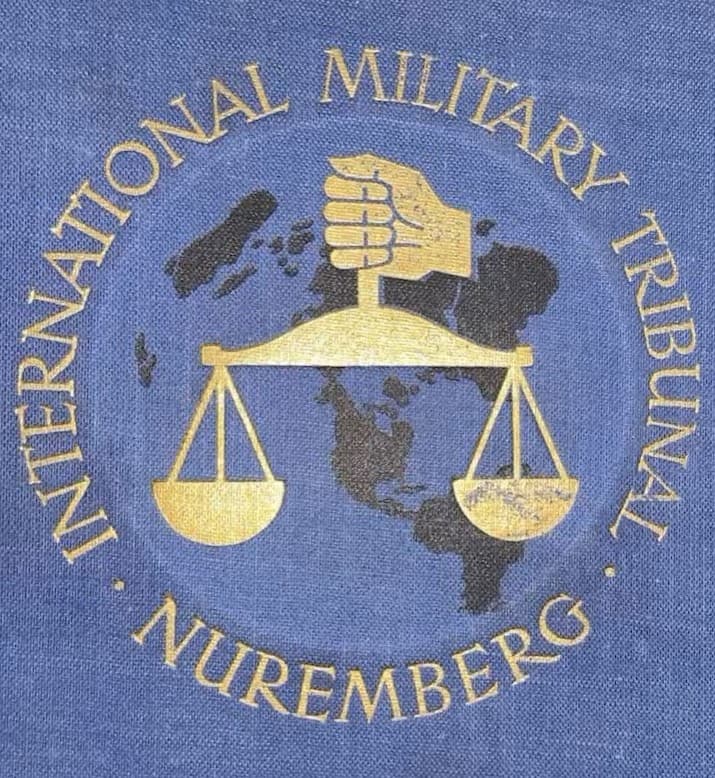Neues Österreich (January 24, 1946)
Rudolf Heß landet in England
Sein abenteuerlicher Flug vor de Nürnberger Gericht
Nürnberg, 23. Jänner - Vor dem Nürnberger Gericht begann gestern die Einzelanklage gegen Rudolf Heß, mußte aber unterbrochen und verschoben werden, da sein Anwalt im Gerichtsgebäude stürzte und sich dabei den Fuß brach.
Heß hat um die Erlaubnis gebeten, sich für den Rest der Verhandlung selbst verteidigen zu dürfen, doch ist eine Entscheidung darüber noch nicht getroffen worden.
Als erstes Dokument wurde ein Bericht über die Unterredung des Herzogs von Hamilton mit Heß am 11. Mai 1941 vorgelegt. Der Bericht stellt fest, daß Hamilton sich im Operationsabschnitt Turnhouse im Dienst befand, als ein feindliches Flugzeug auf der Höhe von Northumberland um 22,08 Uhr am 10. Mai 1941 gemeldet wurde. Das Flugzeug wurde als eine „Me 110“ festgestellt, und ein englischer Jäger nahm die Verfolgung auf.
Der Führer des deutschen Flugzeuges, der mit Fallschirm absprang und gefangengenommen wurde, gab seinen Namen mit Alfred Horn an und erklärte, er habe den Herzog von Hamilton in einem Sonderauftrag zu sprechen.
Nachdem der Herzog davon unterrichtet worden war, habe er sich mit dem Vernehmungsoffizier zu dem Gefangenen begeben.
‚Ich bin Rudolf Heß‘
„Ich betrat zusammen mit dem Vernehmungsoffizier und dem Wachhabenden das Zimmer“, fährt der Bericht des Herzogs fort, „in dem sich der Gefangene befand. Der Gefangene verlangte sofort mit mir allein zu sprechen. Ich ersuchte die anderen Offiziere, sich zurückzuziehen, worauf der Deutsche erklärte:
Ich weiß nicht, ob Sie sich meiner erinnern; ich bin Rudolf Heß.
Er erklärte weiter, daß er in einer Mission der Menschlichkeit gekommen sei und daß der Führer nicht wünsche, England zu schlagen, wohl aber den Kampf einzustellen.
Sein Freund Albrecht Haushofer habe ihm gesagt, ich sei ein Engländer, der, wie er glaube, seinen, Heß, Standpunkt verstehen werde. Er habe daher versucht, eine Zusammenkunft in Lissabon zu arrangieren.
Heß erklärte weiter, daß dies bereits der vierte Versuch sei, den er unternommen habe. Dreimal habe er wegen Schlechtwetters umkehren müssen.
Hitler vom Endsieg überzeugt
Er habe seine Reise nicht zu einer Zeit unternehmen wollen, da Großbritannien in Libyen siegreich gewesen sei, da er annehmen mußte, daß dann sein Schritt als Schwäche ausgelegt würde. Da nunmehr Deutschland Erfolge in Nordafrika und Griechenland errungen habe, sei ihm der Zeitpunkt als geeignet erschienen.
Der Führer sei überzeugt, daß Deutschland den Krieg gewinnen würden er wünsche ein unnötiges Abschlachten einzustellen, das sonst unweigerlich Platz greifen würde.
Heß fragte mich, ob ich nicht die führenden Mitglieder meiner Partei zusammenrufen könnte, um mit ihnen Friedensvorschläge zu besprechen. Ich antwortete ihm, daß es in diesem Lande jetzt nur eine Partei gebe. Heß antwortete, er könne mir sagen, was Hitlers Friedensbedingungen seien. Vorerst würde er auf einem Abkommen bestehen, wonach unsere zwei Länder nie wieder Krieg führen sollten.
Während der Besprechungen war Heß in der Lage, sich selbst klar und deutlich auszudrücken, verstand aber nicht immer ganz, was ich sagte. Ich schlug daher vor, einen Dolmetsch beizuziehen.
Aus einem weiteren Bericht über drei Besprechungen des Vertreters des britischen Außenministeriums Kirkpatrick mit Heß am 14. und 15. Mai geht hervor, daß
Heß behauptete, er sei ohne Wissen Hitlers gekommen, um die verantwortlichen Personen zu überzeugen, daß, wenn England den Krieg nicht gewinnen könne, es am klügsten sei, jetzt Frieden zu schließen. Auf Grund seiner langen und unmittelbaren Kenntnis Hitlers, könne er sein Ehrenwort geben, daß Hitler gegen das britische Empire nie irgend welche Anschläge erwogen noch nach der Weltherrschaft gestrebt habe.
Deutschlands Interessen seien in Europa, und jede Vergeudung der deutschen Stärke außerhalb Europas würde eine Schwächung bedeuten und den Grund für eine Zerstörung Deutschlands legen Hitler würde einen Zusammenbruch des britischen Empire aufrichtig bedauern. An diesem Punkt versuchte Heß mich gegen Amerika einzunehmen, das dunkle Pläne mit dem Empire habe. Kanada würde sicherlich in die Vereinigten Staaten aufgenommen werden.
Die Lösung, die Heß vorschlug, war, daß England Deutschland freie Hand in Europa und Deutschland England vollständig freie Hand im Empire geben solle, mit dem Vorbehalt, daß Großbritannien Deutschland seine früheren Kolonien zurückgebe, die es als Rohstoffquelle brauche.
Der Angriff auf Rußland
Ich forderte ihn auf, so heißt es in Kirkpatricks Bericht weiter, die Haltung Hitlers gegenüber Rußland darzulegen, ob er Rußland als zu Europa gehörig betrachte oder zu Asien.
Er antwortete: Zu Asien.
Ich entgegnete, daß nach den Bedingungen seines Vorschlages, wonach Deutschland nur freie Hand in Europa wünsche, es nicht ermächtigt sei, Rußland anzugreifen.
Heß antwortete rasch mit der Bemerkung, daß Deutschland gewisse Forderungen an Rußland zu stellen habe, die entweder durch Verhandlung oder als Ergebnis eines Krieges befriedigt werden könnten. Er fügte hinzu, daß die Gerüchte Hitler wolle in Kürze Rußland angreifen, jeder Grundlage entbehrten.
Zu den Ansprüchen Italiens erklärte er, er sie sicher, daß sie nicht übermäßig sein würden. Das Gespräch abschließend, sagte Heß, er habe vergessen zu betonen, daß diese Vorschläge nur unter der Annahme erwogen werden könnten, daß sie mit Deutschland von einer anderen als der gegenwärtigen britischen Regierung beraten würden.





















